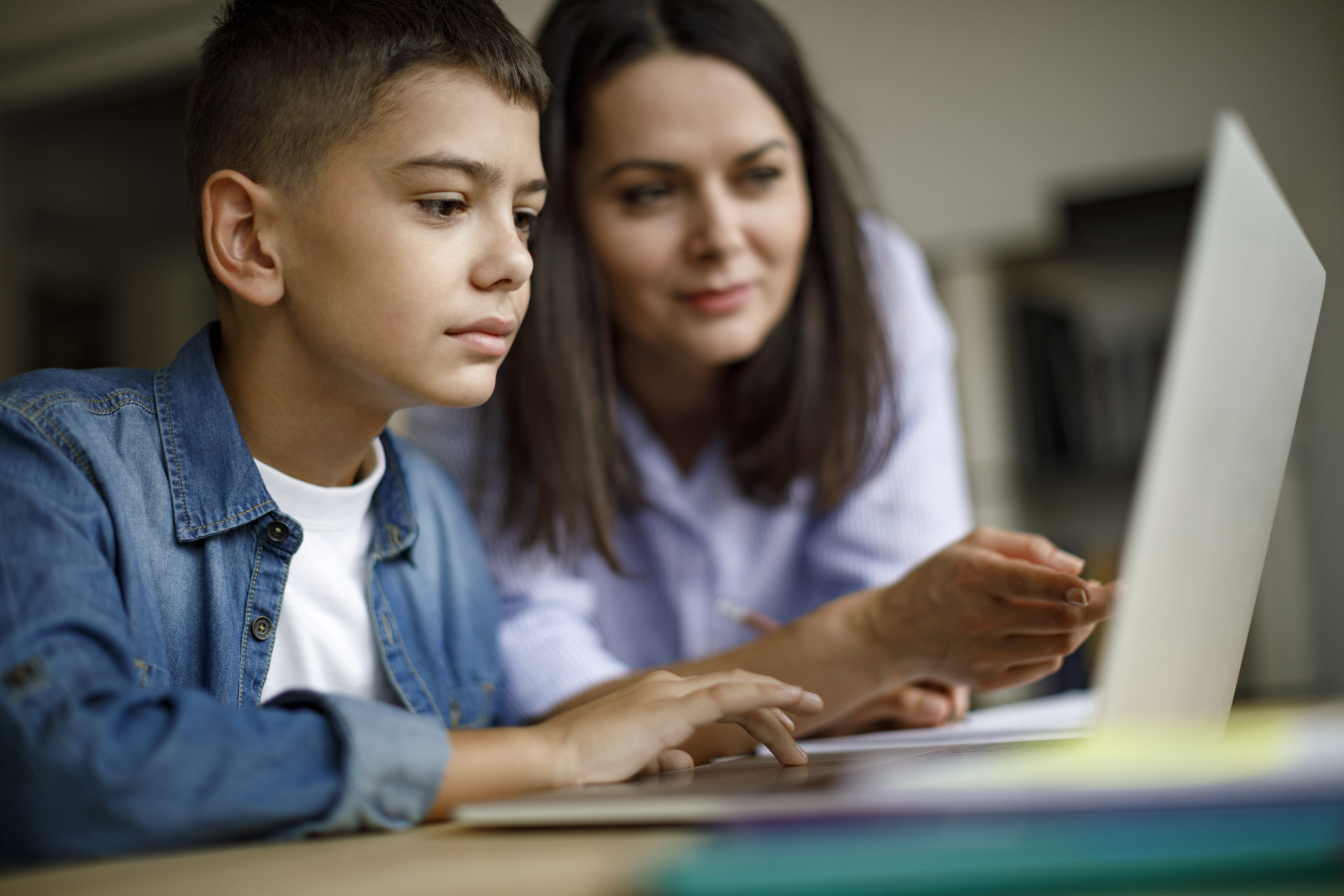
As the school year approaches, many Oregon schools are implementing the full distance-learning model due to COVID-19. If this is happening in your school district, it can feel overwhelming and scary being in charge of your child’s education for the first time. It is important to prepare your children to learn and grow during their studies at home, but it’s even more critical for you as the parent to be mentally prepared for this new endeavor. You didn’t expect to be working and homeschooling your child during a pandemic, so it’s normal to feel overwhelmed or anxious.
Take a step back, breathe, and mentally prepare yourself to do the best you can to help your child learn from home using these helpful tips.
Realistically assess and address the benefits & challenges.
If distance-learning feels overwhelming, take a step back and assess the realistic benefits and challenges. These can vary between families as children and home lives differ. But some basic benefits from distance-learning include spending quality time with your kids, bonding with them over what they are learning, and being more involved in supporting their academic journey. Challenges you can face as a parent are not having enough time to invest in their child’s learning at home, not knowing how to help them with certain problems or lessons, or lacking the energy to keep up with the kids, especially if you have multiple young children.
In order to prevent further anxiety, come up with possible solutions to any foreseeable challenges. Become familiar with the platform your student will be using beforehand, whether it’s Google Classroom, Zoom, or something else. If you have a young student, you will be in charge of setting up most of the technology, so it’s good to play around with the system and get to know how it works. Communicate with school personnel to figure out what exactly will be expected of you and your child. If you need help with academics, ask for tips from the teacher. If you’re worried about your child’s mental or emotional health, talk to the school counselor or a mental health professional.
Create a schedule or routine for your family.
Research has shown that routines are crucial in guiding behavior and support early development for young children. When they know what to expect and what they are expected to do, it gives them a sense of control, which decreases their anxiety or stress.
The same goes for most adults. It may take some adjusting if you don’t usually function on a daily schedule, but it will help you stay organized and feel more in control. Some considerations to make while creating a routine is setting a time for your child to wake up and prepare for their online lessons. Introduce breaks throughout the day for both you and your child to get away from the screen. Take walks around the neighborhood or go to the park. Play a fun board game with them or send them to play with their toys or do homework while you take a much-needed rest.
Take on a growth mindset.
Our mindset has a lot to do with how we approach challenges, failures, and successes. There are two types of mindsets one can have in approaching learning: a fixed mindset or a growth mindset. Carol Dweck, a Stanford psychologist who conducted this research, defined a fixed mindset as believing the talents and intelligence one is born with cannot be developed, and that talent alone garners success. In contrast, a growth-mindset thrives on challenges and sees mistakes and failures as opportunities to grow and stretch our existing abilities.
Dweck writes: “In the fixed mindset, everything is about the outcome. If you fail—or if you’re not the best—it’s all been wasted. The growth mindset allows people to value what they’re doing regardless of the outcome. They’re tackling problems, charting new courses, working on important issues,” (Dweck, 2015)
When it comes to distance-learning, even if your student doesn’t seem to be learning as much as they would be in a traditional school setting, know that this time is not a waste. It may take time to cultivate this way of thinking if it doesn’t come naturally to you, and that’s OK! You can help nurture this attitude and mentally prepare yourself for this new way of learning at home by being flexible, patient, and open with yourself, your child, and the school. We’re all figuring out how to do this together. And when your student sees you modeling a growth-oriented mindset, they will most likely adopt the same attitude, which will help them face challenges and seek to grow from their experiences and failures in the long run.
In the midst of all this, be patient and forgiving with yourself. Don’t feel guilty for needing some alone time after work and homeschooling. Those moments of self-care and solitude will help you recharge and save you from burning out.

Emily currently lives in Orange County, California after spending four years in Illinois and half a year teaching in Florence, Italy. She holds a B.A. in English Literature from Knox College and an M.A. in Counseling from the University of San Diego and has taught English to native speakers and ESL students for over three years. When she’s not working as a School Counselor or writing, she enjoys traveling the world, playing instruments, and blogging about Millennial experiences at Long Live the Twenties.
